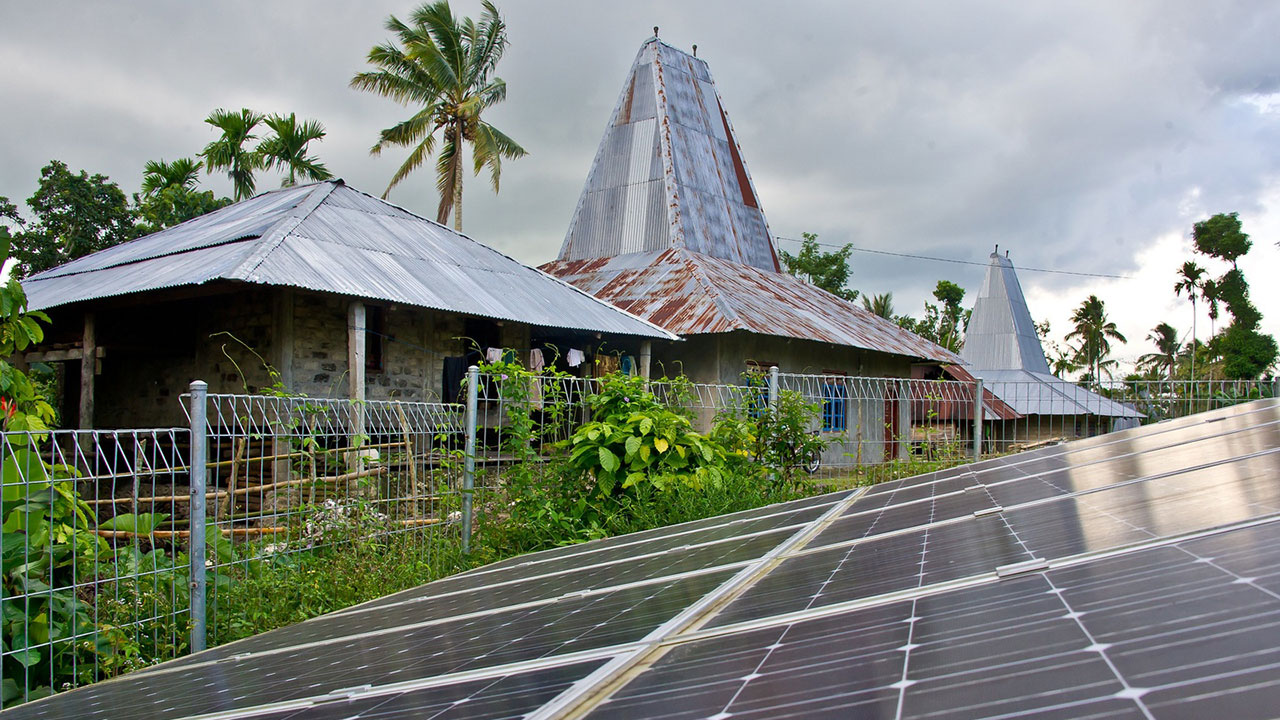
Previous Article
How can Southeast Asia’s clean energy transition be sped up?
It’s no secret that one of the fashion industry’s biggest issues is its creation of waste. Each year we throw away millions of tonnes of textiles which end up in landfills. In Singapore, according to figures from the National Environment Agency, 205,800 tonnes of textile waste were produced in 2018, of which only 6% was recycled!
However, the good news is that ‘sustainability’ is no longer just a buzzword. Businesses, including those in the fashion industry, are now waking up to the idea of moving towards a circular economy to minimise waste.
It’s clear that any conversation about sustainability needs to include educating ourselves and the next generation about clothing waste. That’s why we were thrilled to hear about Trash To Fash, the first-ever upcycling competition by Temasek. The competition, held in conjunction with Ecosperity Week 2019, was co-organised by events curation agency Tabula Rasa and supported by MINIWIZ, DesignSingapore Council and MINDS. It challenged participants to design clothing using recycled PET fabric and other upcycled materials.
The goal? To educate those involved about the circular economy and how what we view as ‘trash’ can actually be upcycled into fashionable clothing.
Temasek's annual Ecosperity conference has traditionally been a platform for business leaders to discuss opportunities for sustainable development, but this new competition is a solid attempt to get Singapore’s youth more involved in sustainability. Participants designed an apparel based on a challenge statement and produced 2-3 minute pitch videos featuring their final product.
“A problem with fast fashion is how it contributes to a throwaway culture and hence, excessive waste,” said Robin Hu, Head, Sustainability & Stewardship Group at Temasek. “Trash to Fash hopes to inspire youths to demonstrate how Ecosperity can be achieved with sustainable designs that shape the future of the fashion industry.”
A great way of getting the participants engaged was through workshops and coaching sessions by individuals from the industry. Mentors included Coco Mercy Chu, founder of KALAIA label, Raye Padit, founder of The Fashion Pulpit and Xin-Yi Wong, Sustainability Manager at H&M, to name but a few.
“When we created the coaching sessions, we wanted the right brands and mentors onboard to give the participants a wide-angle view into the industry - and with brands and organisations like KALAIA, H&M, StyleTheory, The Fashion Pulpit, the Textile and Fashion Federation coming on to mentor and guide the participants, we believe that the participants managed to learn quite a bit,” says Carrie Liauw from Tabula Rasa.
Undoubtedly, the teams had a lot to learn in a short space of time, so they had access to all the mentorship they could get. Competition judge and mentor Coco also led a workshop for the teams.
She said, “I would really want to see the youths going about their designs in a non self-centered way, and to think more along the lines of ‘What can my designs do for society, or to empower people? What can my designs do to impact change?’” Her conscious fashion label KALAIA is produced through sourcing quality, leftover silk fabric from big orders and is cut and sewn locally and ethically in Singapore in small quantities.
Being a conscious fashion label isn't an option today, it’s a must.
"Everything is a cycle in this world and I don't think anyone should disrupt it by being one thing or the other. As creators of clothing, designers need to find ways and means to improve the cycle by recycling, reusing or upcycling. It’s not just an option, it's a necessity and a requirement moving forward. We now see big brands such as H&M and Adidas that are taking the lead, and using recycled plastics and upcycled materials. But every bit counts, even for smaller labels,” she says.
Alicia Tsi and Vincent Teo, founders of local sustainable fashion labels Esse and SOURCE Collections respectively, were excited to be involved in judging the first round of the competition. As designers who have been promoting a greener way to create clothing in smaller quantities and with natural fabrics, it was an eye-opening experience.
“Fashion is a resource-heavy industry, and it takes a lot of resources to create the garments we wear. So much of Earth’s precious resources are used and so much pollution is generated in the process of keeping up with our consumption habits. The health of our planet and natural systems are at stake, and we simply cannot continue to consume mindlessly. That’s where conscious fashion brands can step in to educate customers and make them aware of these issues,” says Alicia.
At ZERRIN, we’re big supporters of Trash to Fash and our founder, Susannah Jaffer, also played her part as a judge for the semi-finals, concluding with the top 8 finalists showcasing their work at Ecosperity Week and the finale runway event on 3 June 2019. Now, more than ever, we need more initiatives in Singapore like this to spark conversations about sustainability and circularity in one of the world’s most resource-heavy industries.
This story is written by ZERRIN as part of a collaboration with Trash to Fash.